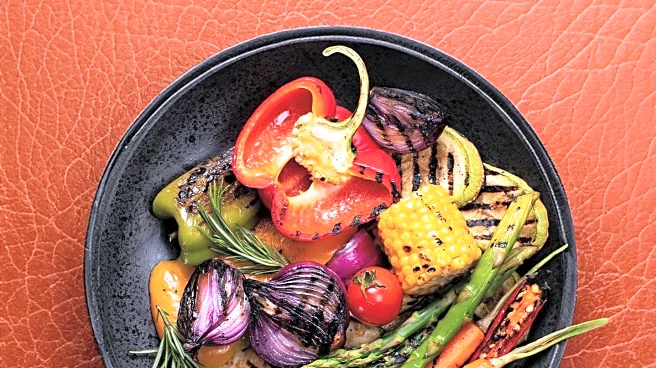What's Happening?
Chef Sean Sherman, known for his work in promoting Indigenous cuisine, has released a new cookbook titled 'Turtle Island: Foods and Traditions of the Indigenous Peoples of North America.' The book explores regional flavors across North America, focusing
on decolonized ingredients such as fresh game, fish, fruits, and vegetables used before colonization. Sherman aims to showcase the diversity of Indigenous food traditions and highlight sustainable practices inherent in these cultures. The cookbook is a follow-up to his previous award-winning work, 'The Sioux Chef’s Indigenous Kitchen,' and continues his mission to eliminate colonial influences from Indigenous recipes.
Why It's Important?
Sherman's work is significant in preserving and revitalizing Indigenous food traditions, offering a cultural and historical perspective on North American cuisine. By focusing on decolonized ingredients, the cookbook challenges conventional culinary norms and encourages a return to sustainable, locally-sourced food practices. This approach not only honors Indigenous heritage but also promotes environmental sustainability and biodiversity. Sherman's efforts contribute to a broader movement of cultural reclamation and education, fostering appreciation and understanding of Indigenous contributions to culinary arts.
What's Next?
Sherman's cookbook may inspire chefs and home cooks to explore Indigenous ingredients and cooking methods, potentially leading to greater representation of Indigenous cuisine in mainstream culinary spaces. Educational initiatives and collaborations with Indigenous communities could further promote the preservation of traditional foodways and sustainable practices.
Beyond the Headlines
The cookbook's focus on decolonization reflects broader societal efforts to address historical injustices and promote cultural equity. It highlights the importance of food as a medium for storytelling and cultural expression, offering insights into the resilience and innovation of Indigenous peoples.















